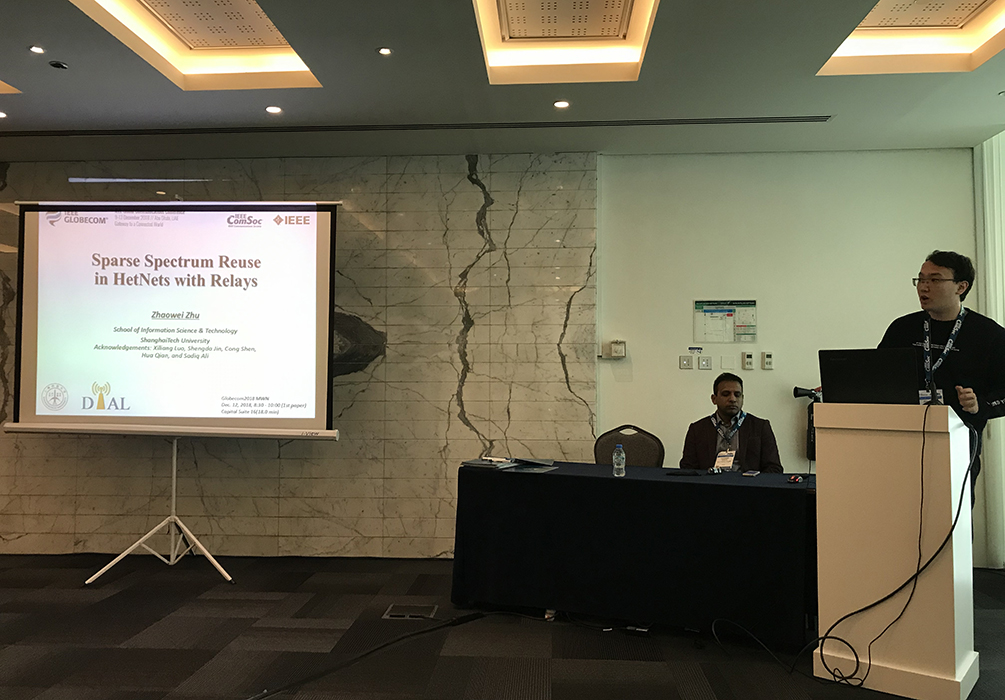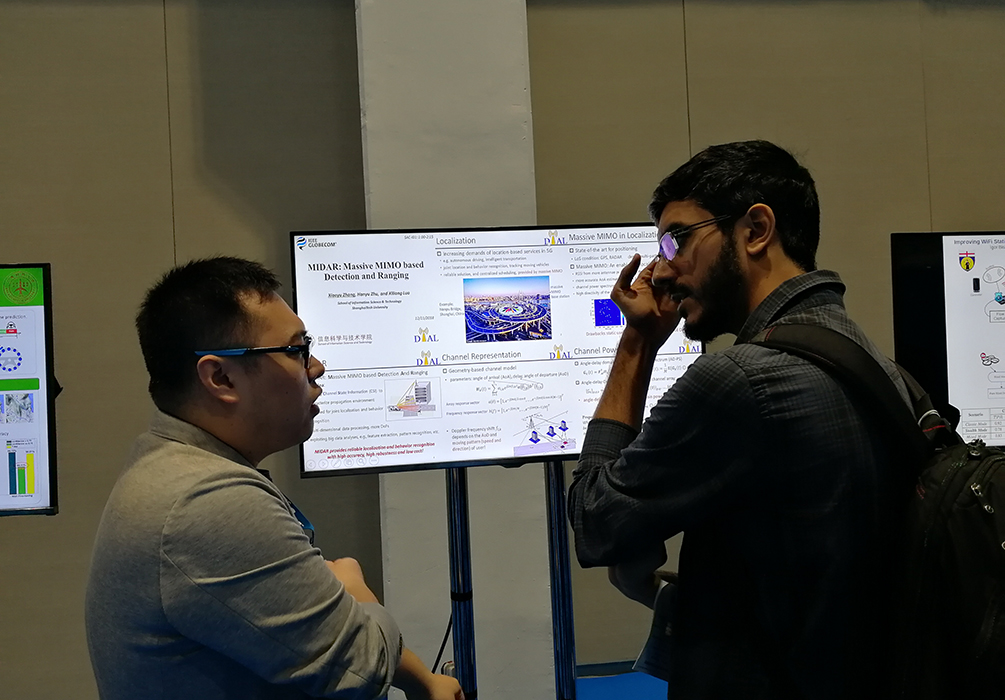The IEEE Global Communications Conference, a major event in the network and communications was recently held in Abu Dhabi, United Arab Emirates with the theme of “Gateway to a Connected World,” attracting 3,000 top scientists, researchers and industry practitioners from all over the world.
Two members of Dr. Luo Xiliang’s research group belonging to the Fog Computing Laboratory in the School of Information Science and Technology were invited to participate in the exhibition and present their latest research results. Zhang Xiaoyu, a third year PhD student, presented a poster entitled MIDAR: Massive MIMO based Detection and Ranging at the SAC Interactive Session 1. He extensively discussed and exchanged ideas with many experts and scholars in related fields. Another third year graduate student, Zhu Zhaowei, presented papers entitled Learn and Pick Right Nodes to Offload and Sparse Spectrum Reuse in HetNets with Relays in the SAC-IoT session named Edge Computing for Internet of Things and MWN session named Various Network Resource Allocation and User Access, respectively.
Specifically, the paper entitled MIDAR: Massive MIMO based Detection and Ranging firstly proposed the mechanism using large-scale antenna arrays for localization and behavior recognition, etc. In this work, the large amount of channel state information (CSI) in wireless communications was exploited. Combined with tensor analysis, machine learning, neural network and other theories, this work investigated a novel application of massive MIMO to open up new designs and implementations for some areas such as autonomous driving and intelligent transportation, with broad application prospects.
The paper Learn and Pick Right Nodes to Offload focused on environmental uncertainty in a fog-enabled task offloading problem. The uncertainty was modeled as an online learning problem and the exploration-exploitation tradeoff in this problem was solved using the multi-armed bandit theory. The paper Sparse Spectrum Reuse in HetNets with Relays studied the optimal spectrum reuse problem in heterogeneous networks with relay nodes. It proved the existence of sparse solutions and designed an algorithm to find the sparse solution of the problem.
The Global Communication Conference (GLOBECOM) is held annually and is one of the two flagship conferences of the IEEE (Institute of Electrical and Electronics Engineers), the world's largest electronic science and engineering society. GLOBECOM is the largest, highest-profile, and most influential top-level academic conference in the global communications field, covering many frontiers such as wireless communications, wireless networks, mobile communications, in-vehicle communications, positioning technologies, and in-vehicle technologies.
In addition to the above-mentioned latest scientific research results, in November 2018, the paper Fog As a Service Technology, completed by SHIFT Luo Xiliang and Yang Yang's research group, was published in IEEE Communications, an internationally renowned journal.

Zhang Xiaoyu, a third year PhD student, in discussions with a participant.

Third year graduate student Zhu Zhaowei presenting his paper.

